#brettanomyces
Photo
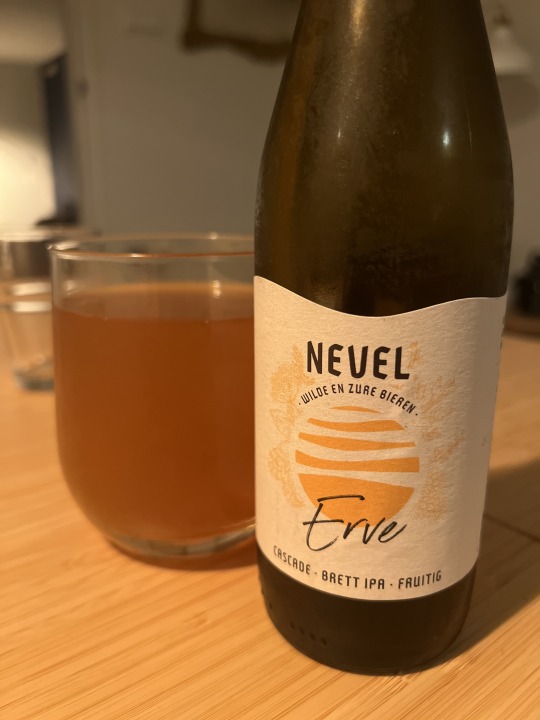
Nevel Wild Ales Erve Brett IPA (Picked up at Sterk in Amsterdam). A 3 of 4. Smells of Brett, and this delivers a nice funky package with quite a lot of lemon/lime and farmyard. A touch on the acidic side in the body, and a bit thin, but this has the interesting wild flavor profile you want.
12 notes
·
View notes
Photo
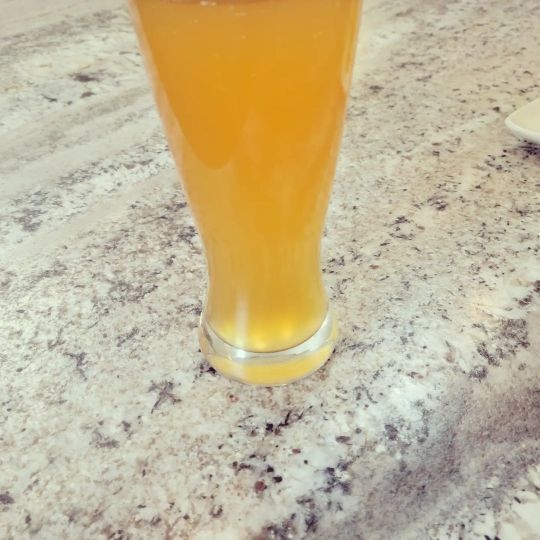
My Peach Saison is ready!! It has been on CO2 for week. I like the volumes choice. It is nicely carbed without being to effervescent. Peach on the nose with a bit of saison/brett funk. A little heavy handed at 9%, but dry, slightly malty, with good mouthfeel. I am pretty happy overall. #beer #craftbeer #homebrewing #homebrewer #peachsaison #co2 #brettanomyces https://www.instagram.com/p/CjwKIU7p1PC/?igshid=NGJjMDIxMWI=
5 notes
·
View notes
Photo
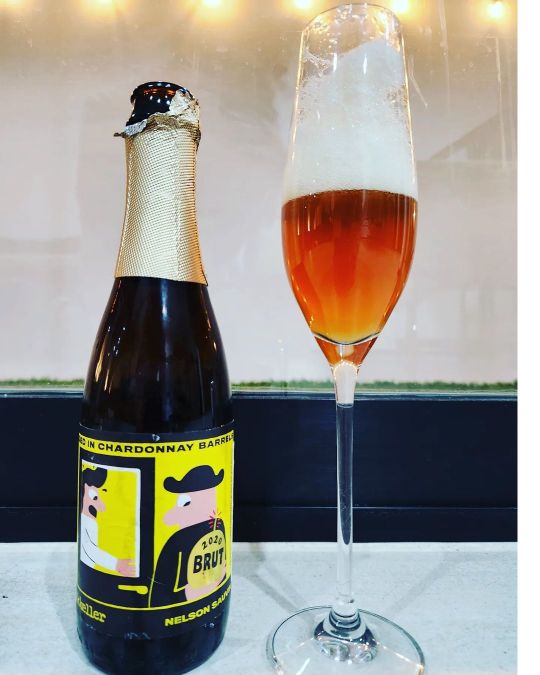
#beeroftheday #nelsonsauvignonblanc Fermented with #aleyeast, #brettanomyces and #enzymes. Then it has been aged three months in Austrian #whitewinecasks. #bieredechampagne #bierebrut #sourbeer #fruitbeer #champagnebeer #champagne #brutbeer #sauvinbrut #mikkeller #mikkellerbeer #mikkellerbrewing #craftbeer #craftbeernotcrapbeer #beergeek #beerporn #ilikebeerbeerisgood #beerstagram #hacercervezaesarte #elsonidodelacerveza (en Zibatá, Queretaro.) https://www.instagram.com/p/CoiCtBTuika/?igshid=NGJjMDIxMWI=
#beeroftheday#nelsonsauvignonblanc#aleyeast#brettanomyces#enzymes#whitewinecasks#bieredechampagne#bierebrut#sourbeer#fruitbeer#champagnebeer#champagne#brutbeer#sauvinbrut#mikkeller#mikkellerbeer#mikkellerbrewing#craftbeer#craftbeernotcrapbeer#beergeek#beerporn#ilikebeerbeerisgood#beerstagram#hacercervezaesarte#elsonidodelacerveza
0 notes
Text
First Day of Autumn Felt Like Summer

A beautiful start to fall in West Michigan. My morning coffee saw our Pacific Rhododendron blooming three months later than usual. I’m not complaining. It will be cold here soon enough.
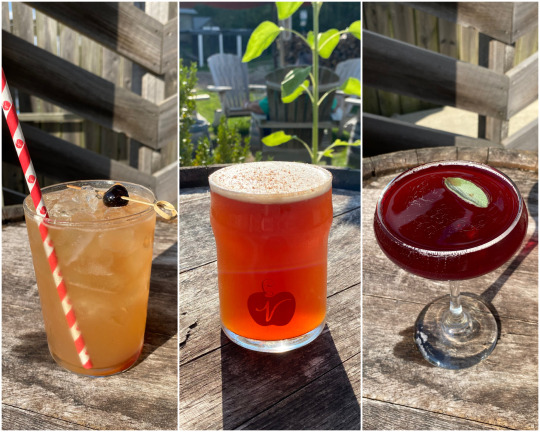
The warm weather didn’t stop the launch of three new fall cider cocktails today at Virtue Farm.
Ditches & Culverts Cherry Mitten cider, Rare Tea Cellar’s Italian Green Almondine, angelica root syrup, fresh lemon juice. Served on the rocks in a bodega glass. A cider version of an Amaretto Sour.
Ready For The Big Reveal? Malted honey sarsaparilla, Rare Tea Cellar’s Horchata Chai, Blueberry Mitten cider, Angostura bitters, cream, nutmeg. Served up in a pub glass. An elevated iced chai with cider.
Wild About Game Rare Tea Cellar’s Berry Meritage & Forbidden Forest Lapsang Souchong, Cardinale cider with Brettanomyces, 2:1 Demerara syrup, Angostura bitters, twice slapped sage. Served up in a coupe. A savory cocktail of contemplation.
2 notes
·
View notes
Photo
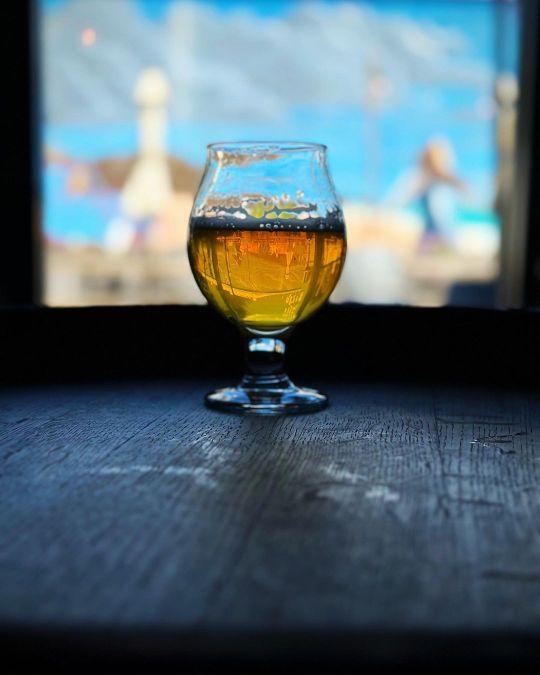
This blend of Sante Adairius Saisons with Brettanomyces, called “If Memory Serves”, is amazing. Aromatic with fruity citrus and spicy notes and a delightfully dry finish. Doesn’t get any better. #craftbeer #saison @rusticales (at Sante Adairius Rustic Ales) https://www.instagram.com/p/CqQ6OkIPlow/?igshid=NGJjMDIxMWI=
2 notes
·
View notes
Text
Staff Meeting
Fandom: Stargate Atlantis
Characters: Elizabeth Weir, Radek Zelenka, Evan Lorne, Rodney McKay, Laura Cadman, Chuck Campbell, John Sheppard, David Parrish
Rating: T
Word Count: 1005
Tags: Microbrew AU, beer, vague implied cannabis use, brewing, ficlet
Summary: Just another weekly staff meeting at Atlantis Brewing Co.
Notes:
Prompt: by @colonelshepparrrrd | inspired by my favorite photo of David Nykl:
"Hipster AU where they all work at a microbrewery."
Setting: Portland, Oregon.
Pronunciation: Gose (GOHZ-uh.)
Read on AO3
“Could I have everyone's attention please?” Elizabeth said as she made her way to the front of the room.
Laura turned from her conversation with Radek to head toward her chair. The bespectacled man looked back down at his journal and scribbled in it. Rodney came in from the back room with his clipboard and slumped next to Radek, tilting slightly to read his notes. Evan came out of the office followed by Chuck holding a stack of papers, the two of them sitting. They all settled down and looked up at her before turning toward the sound of light snoring. Laura sniggered and kicked the side of John’s chair, the man jerking upright, barely saving his shades from falling off his face.
“I’m up, I’m up.” He said.
Elizabeth smiled in amusement. “Thank you. I am happy to inform everyone that Evan has secured a spot for us at The Oregon Brewers Festival!” She waved her hand toward Evan as everyone started clapping. The man smiled bashfully as he moved up next to her. “Take it away Evan.” She said before sitting next to Chuck.
“Now, I know we tend to go huckleberry this time of year, but with the festival coming, David and I are thinking about doing something different.” He looked around at everyone. “Rose hips.” He held his hands up at the mummers, “Listen, it’s native, and it has a very subtle sweet flavor." He smiled warmly. "I think it would be a nice change." He shrugged. "Maybe a pilsner?”
“No,” Radek looked up from his journal and leaned back in his chair. “it should be sour beer.” He tilted his head, “Something like-”
Rodney snapped his fingers, “Gose.”
“Ah, yes.” Radek nodded. “We will use Brettanomyces yeast.” He leaned back chewing lightly on his thumb, elbow resting on his other forearm. “Hm. But-”
“-We need another flavor.” Rodney cut in, his face screwing up slightly.
Evan’s eyebrow lifted, “What kind?”
Radek twirled his hand around, “Fresh, citrusy.” He rolled his eyes at the sharp look Rodney shot him, “But not citrus.”
Evan grinned, “Like some local douglas fir tips?”
Radek tilted his head, “I am unfamiliar.”
“Oh, man,” Laura moaned. “I had a doug fir pale ale at Zwicklemania,” she smacked her lips, “it would be perfect.”
“Well, this settles it.” Radek pointed at her, “Who am I to argue with our top taster?”
Laura’s lips quirked up, eyes shining happily.
Rodney groaned, “Yes, please give her an even bigger ego.” Everyone turned and looked at him with arched brows. Rodney grimaced, “What!?”
Evan chuckled. “Cool, David and I will get everything worked out from our end.” His eyes moved to John, “We could use a hand, you down?”
John shrugged. “You know me,” his lips curled up head tilting, “I’m down for anything.”
“Yeah, we know,” Rodney said, followed by a few sounds of amusement from Laura and a snort from Radek.
Evan sat back down next to Elizabeth as Chuck bounded up with his stack of papers. “As usual, let me know if anything is off for deliveries or if your schedules need to be changed.” He squinted at Laura as she took hers, “NOT at the last minute.”
She shot him a sly smile. “I would never.”
“Seriously?” Chuck sent her his best bitch face before sitting back down.
Everyone groaned as Rodney stood and moved to the front of the room. “Alright, you clowns, listen up.” He looked down at his clipboard. "Quit smoking in the downstairs bathroom." He rolled his eyes. "It smells like a Bob Marley concert down there." He flicked them to the side, "Looking at you Sheppard."
John tilted his head, glancing over his shades. "I don't know what you're talking about Rodney."
Rodney slanted his mouth. "Uh-huh, sure you don't.” His eyes slid to Laura, "and do I even need to say it out loud?”
She quirked her lips. “Jealous?
Rodney rolled his eyes skyward, "Knock it off, or I'll have to take drastic measures."
"Fine," she shrugged. "Still say you're jealous."
"Jesus Christ." Rodney's ears turned red as he looked at Chuck, the man freezing, eyes wide.
“We know you’re the one who started the rumor.”
Chuck swallowed, “W-which rumor?”
“Well, that distinction doesn’t really matter considering you start,” Rodney slit his eyes, “ALL OF THEM.”
Chuck pressed his lips together, crossed his arms, and leaned back before shrugging lightly.
“No more.” Rodney made a pained noise as Chuck shrugged again. “Anyways,” he ground out before looking at Radek. “We still need to talk about-”
“Yes,” Radek grimaced. “This new batch, measurements were off.”
Rodney shook his head. “My measurements were perfect, it’s the pick of flavors that really caused-”
“No, measurements were off, the beer is only-”
“As good as the brewer," Rodney mocked using finger quotes, "yes, we have heard it a quintillion times already.”
Elizabeth made an amused face at the others and stood, brushed off her pants, and headed toward the office. Evan and Chuck followed closely behind.
Radek pushed his glasses up his nose. “Well, then you know that-”
“-No, It’s completely salvageable, we make it cheap, slap some-”
Radek stood, his hand slashed through the air, “it will never be sold.” He curled his lip. “I will not sully our name with shit beer.”
“Come on Radek, we can’t just scrap the whole thing. It’s not even that bad.”
John tilted toward Laura and pointed at his watch, eyebrows raising several times. Laura smiled slyly, the two of them heading downstairs.
Radek’s nose scrunched up, “It tastes like donkey piss.”
“Oh? Are you very familiar with this flavor?” Rodney said, “I didn’t know donkey piss was a Czech delicacy.”
“Rodney," Radek intoned.
He huffed, “Alright, fine.” He pulled a pen out and crossed it off his list. “Done, scrapped, no more.” His hand waved around, “Happy now?”
“Quite,” Radek nodded. “Now. Let’s talk about-”
“-The Gose?” A lopsided smile split across Rodney's face.
Radek grinned back, his dimple popping out. “Of course the Gose.”
#microbrew AU#Atlantis Brewing Co#beer#brewing#cannabis#sga#stargate atlantis#Elizabeth Weir#Rodney McKay#Evan Lorne#Radek Zelenka#Laura Cadman#John Sheppard#David Parrish mention#twotalesff#fanfic
2 notes
·
View notes
Text
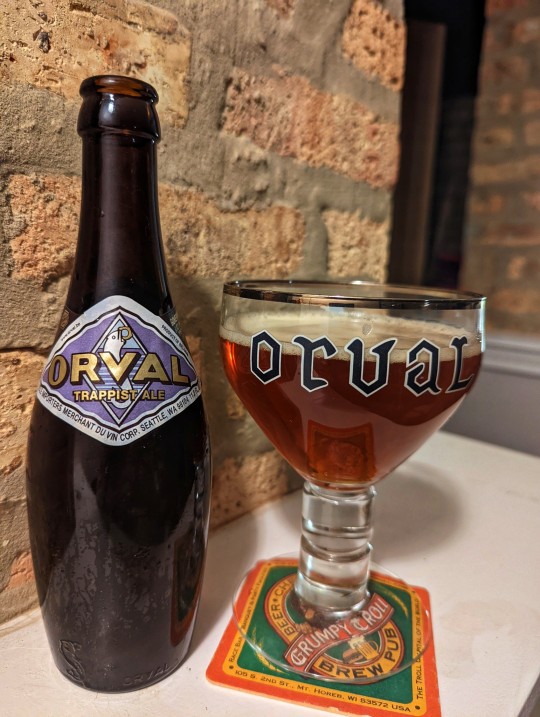
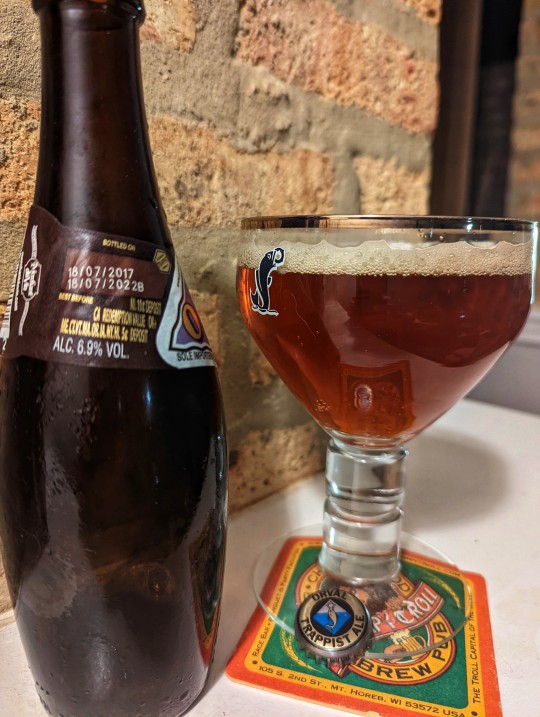
Happy #OrvalDay 2022! This bottle expressed a delightful horse hair brettanomyces character when opened. Brett funkiness, a touch of caramel malt sweetness and a bitter, dry finish. Easily the funkiest bottle I've had through the years. A special beer with a great story.
4 notes
·
View notes
Text
Characterization of Brettanomyces bruxellensis phenolic acid decarboxylase enzyme expressed in E. coli
BioRxiv: http://dlvr.it/T5bxQ7
0 notes
Text
Brettanomyces etil fenoli| Biorself.it
Scopri di più su Brettanomyces ed etil fenoli su Biorself.it. Esplora come questi elementi influenzano il profilo aromatico e gustativo delle tue birre.
Brettanomyces etil fenoli
0 notes
Text
0 notes
Photo
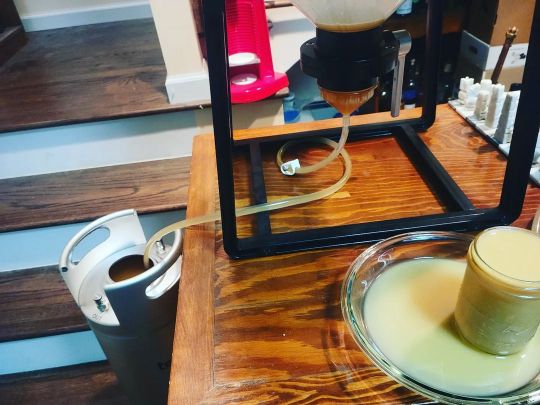
Barrel day! I liked the new system. You can see the jar with sediment off to the side. I pulled one other jar of sediment during the fermentation. This was a long cycle as I had originally pitched both saison yeast and brettanomyces. The last week the brett took over and drove it to finish. Dry, slightly tart, saison/brett funk, and peach on the nose. Coming in at 9% abv I can hardly wait until it finishes carbonation. #beer #homebrewing #draftbeer #draftbeersystem #saison #brettanomyces #peachsaison #sour https://www.instagram.com/p/CjZaGXuNRH0/?igshid=NGJjMDIxMWI=
2 notes
·
View notes
Text
From Gut Health to Detox: The Benefits of Kombucha
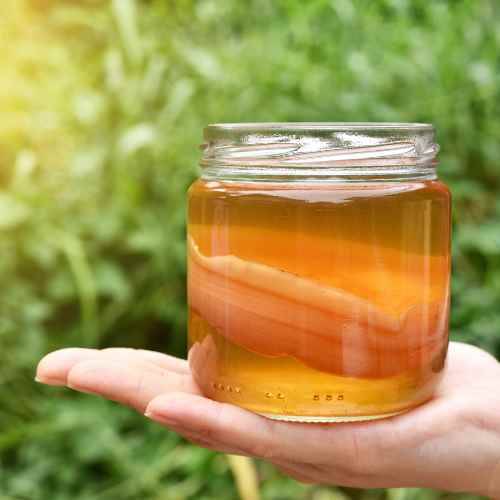
In case you missed the memo, the benefits of kombucha have been a talking point for quite a while now. From nurturing gut health with its probiotics to aiding the body's natural detoxification process, it has emerged as a potent player in the world of functional beverages. In this article, we will look into the fascinating world of kombucha, its brewing process, and the various ways it can contribute to your health and wellness.
Where does Kombucha come from?
Kombucha originated around 2,000 years ago in Northeast China (formerly known as Manchuria). A fermented tea drink, it was highly valued for its detoxifying and energizing properties. It was then traded along the Silk Road and eventually found its way to Russia and Eastern Europe. Over time, it gained popularity in the West, and by the late 20th century, kombucha had firmly established itself as a globally loved health beverage.
Despite its seemingly recent surge in popularity, the roots of kombucha run deep, entwined with ancient cultures and age-old traditions of health and wellness.
How is Kombucha made?
Kombucha is made through a fermentation process that starts with a sweetened tea base. The magic happens when a Symbiotic Culture Of Bacteria and Yeast (SCOBY) is introduced to this sugary tea mix. This SCOBY, often referred to as the "mother" or "mushroom," begins to feed on the sugar, initiating the fermentation process. Over a period of about 1-3 weeks, the brew is transformed into a fizzy, slightly sour, and refreshing beverage packed with probiotics, enzymes, and beneficial acids.
The specific flavour profile of kombucha can vary greatly based on factors such as the type of tea used, the duration of fermentation, and any additional flavourings added post-fermentation, such as fruits or herbs.
The Health Benefits of Kombucha
Thanks to its unique brewing process, kombucha is not just any ordinary tea. Kombucha health benefits have been celebrated for centuries and it is often touted for its ability to support a range of wellness goals - from boosting gut health to promoting detoxification and heart health.
Gut health and kombucha
Perhaps the best-known benefit of kombucha is its role in promoting a healthy gut. But why is it so good for our digestive health?
The role of probiotics in gut health
Probiotics, often referred to as "good bacteria," play a vital role in maintaining gut health. Our gut is home to trillions of microorganisms, including various bacteria types, collectively known as the gut microbiome. When this microbiota is balanced, it aids digestion, nutrient absorption, and immune function. Probiotics contribute to this balance by inhibiting harmful bacteria's growth, boosting the immune system, and helping to maintain the gut's protective barrier. They can also produce substances like short-chain fatty acids, which provide nourishment for the gut lining.
How kombucha nurtures digestive health
Kombucha directly nurtures gut health through its rich composition of probiotics and acids produced during the fermentation process. These probiotics, along with acetic, gluconic, and lactic acids, can help restore the balance of the gut microbiota. The probiotics in kombucha, specifically Saccharomyces and Brettanomyces, are known to combat harmful bacteria in the gut, fostering an environment conducive to the growth of beneficial bacteria.
Additionally, the acids in kombucha can aid in maintaining an optimal pH level in the gut, further promoting digestive health by inhibiting the growth of undesirable bacteria and yeasts. Moreover, kombucha is believed to have a prebiotic effect, providing nourishment for beneficial gut bacteria and stimulating their growth.
By introducing and nourishing the beneficial bacteria in our gut, kombucha can play a vital role in maintaining and improving digestive health.
Kombucha as a detoxifying agent
Kombucha is also known as a powerful detoxifying agent, binding to the toxins present in the body and aiding in their expulsion, thus promoting a healthier liver and overall well-being.
Understanding detoxification
Detoxification is the biological process of eliminating toxins from the body. These toxins can be anything from harmful chemicals we intake through air, food, and water, to natural waste products produced by our bodily functions. The process involves several key organs, primarily the liver, which plays a central role in metabolizing substances to be removed. Toxins are processed for elimination and then excreted through channels such as sweat, urine, and faeces. The kidneys, lungs, and even skin also play crucial roles in this detoxification process.
Regular detoxification can support overall health, improving organ function, boosting energy levels, and supporting the immune system. Drinking kombucha, with its beneficial natural acids and antioxidants, is said to enhance this vital process.
The role of kombucha in the detoxification process
Kombucha plays a crucial role in the detoxification process due to its high content of glucuronic acid, a natural detoxifier. This acid binds to toxins entering the liver and converts them into soluble compounds that can be easily excreted through the kidneys.
By aiding in the efficient removal of harmful substances, kombucha helps to alleviate the burden on the liver and kidneys, resulting in enhanced overall health.
Other health benefits of kombucha
In addition to its detoxifying properties and its positive effects on digestive health, kombucha may offer plenty of other health benefits. The drink can be rich in B vitamins, known for their role in energy production and maintaining good brain health. Kombucha's antioxidant content helps combat inflammation and protect the body from the harmful effects of free radicals.
The antioxidant power of kombucha is all down to the tea it is made from, as all the benefits of tea remain. You can find out more in our article about the benefits of green tea in kombucha.
Lastly, some studies suggest that kombucha may contribute to heart health by reducing levels of "bad" LDL cholesterol while increasing "good" HDL cholesterol. However, more research is needed in this area to fully understand the extent of kombucha's health benefits.
Are there any downsides to kombucha?
Before we look at the downsides and potential side effects of kombucha, it is worth mentioning that not all kombucha is made equal. So it follows that the associated health benefits can vary widely from brand to brand, and even batch to batch. Always buy good quality kombucha and beware of high-sugar versions that may also contain artificial flavours and preservatives.
Our all-natural organic green tea kombucha is raw AND organic.
Like any food or drink, kombucha can also have potential side effects. While generally considered safe for most people, individuals with compromised immune systems or those who are pregnant or breastfeeding should exercise caution.
Kombucha is a fermented drink containing a small amount of alcohol and caffeine, which some people may need to avoid. It can also cause upset stomachs, infections, and allergic reactions in rare cases. Overconsumption may lead to acidosis, a condition characterized by excess acid in the body.
Always remember to consume kombucha in moderation and consult your healthcare provider if you have any concerns.
To recap, kombucha is a delicious drink with a unique flavour profile and a wealth of potential health benefits, that makes a refreshing alternative to sugary sodas. Just remember to prioritize quality, watch out for high-sugar versions, and most importantly, consume in moderation.
Have you tried our range of naturally flavoured raw organic kombucha tea?
This article was reproduced on this site with permission from operafoods.com.au the “Organic Kombucha Distributors”.
See original article:- From Gut Health to Detox: The Benefits of Kombucha
Read the full article
0 notes
Text
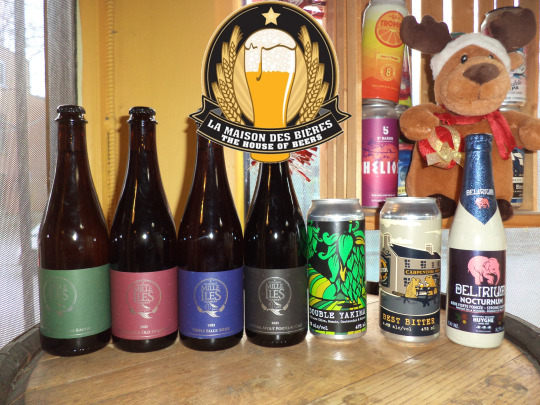
Nouveautés 1 Décembre
Iglou Iglou ces ce qui les eskimos après avoir bu de la bonne bière :
Brasserie Mille-Îles
- TRIPLE BELGE KRIEK
Triple belge affinée en barrique de chêne en compagnie de trois souches de brettanomyces, puis macérée sur cerises griottes.
- SAISON SOTOL et LIME KAFFIR
Saison partiellement affinée en barrique de Sotol, puis infusée de feuilles de lime kaffir fraîchement cueillies provenant d’O’Citrus.
- DOPPELBOCK OLD FASHIONED
Doppelbock affinée en barrique de Rye Whiskey, puis infusée d’écorces d’orange et de bitter aromatique classique du populaire cocktail.
- IMPÉRIAL STOUT PORTO au CAFÉ
Stout Imperial affiné en barrique de Porto puis infusé d’un mélange de café Kenya AA et Yirgacheffe.
Microbrasserie le Castor
- Double Yakima
Brassée avec des ingrédients 100% biologiques, la bière est une célébration des houblons du Nord-Ouest du Pacifique - on parle de Citra, Mosaic, Centennial et
Simcoe. Le malt pâle et la souche de levure californienne laissent toute la place pour laisser briller l'houblon.
- Best Bitter
Un style de bière traditionnelle très agréable à boire qui ne se démode jamais, et qui mérite d'être revisitée de temps en temps.
Brasserie Huyghe
- Delirium Nocturnum
Brun chocolat noir avec une mousse compacte, blanc-jaune, stable et crémeuse. Odeur de caramel, de moka et de chocolat. Des épices comme la réglisse et la coriandre sont également présentes.
0 notes
Text
Kombucha is a fermented tea beverage that has become increasingly popular in recent years due to its purported health benefits. However, many people are surprised to discover that kombucha can be quite expensive, with some brands costing more than $4 per bottle. This begs the question: why is kombucha so expensive? In this article, we will explore the various factors that contribute to the cost of kombucha and how it impacts its overall price.Kombucha is a fermented beverage made by combining tea, sugar, bacteria, and yeast. The main ingredients in Kombucha are black tea (or green tea), sugar, a symbiotic culture of bacteria and yeast (SCOBY), and distilled water. The sugar is used as food for the microorganisms during fermentation. The SCOBY acts as the starter culture and contains bacteria and yeasts including Acetobacter, Gluconacetobacter, Zygosaccharomyces, Brettanomyces, Lactobacillus, and Saccharomyces. Depending on the type of tea used to make Kombucha and desired flavor profile, additional ingredients such as herbs or spices may be added.
How Is Kombucha Made?
Kombucha is a fermented tea beverage that is made from black or green tea, sugar, and a SCOBY (Symbiotic Culture of Bacteria and Yeast). To make kombucha, the SCOBY is added to brewed tea and sugar and left to ferment for 7-14 days. During this time, natural probiotics and acids are produced which give kombucha its tart flavor. The fermentation also produces carbon dioxide which gives the drink its slightly effervescent quality. After fermentation, the kombucha can be flavored with fruits, juices, herbs, spices, and other flavorings. Finally the drink can be bottled or canned for distribution.
Kombucha is a great way to add probiotics and beneficial bacteria to your diet. It's delicious as well as healthy! Making kombucha at home is relatively easy and requires only a few basic ingredients. With some patience and attention to detail you can make your own delicious homemade kombucha in no time!
What Makes Kombucha Expensive to Produce?
Kombucha is a type of fermented tea beverage that has become increasingly popular in recent years. While it can be made at home, it can also be expensive to buy commercially due to the many steps required in the brewing process. Kombucha requires special equipment and ingredients, which increases the cost of production. Additionally, kombucha must ferment for several weeks in order for it to have the desired flavor and health benefits, adding to its production cost.
The main ingredient in kombucha is tea, which is also one of the most expensive components of producing kombucha. High-quality tea leaves are important for achieving the desired flavor and texture of kombucha, but they come at a premium price. Other costly ingredients include sugar and starter cultures, which are used to initiate the fermentation process. The starter cultures need to be replaced regularly in order for the kombucha to continue fermenting properly, resulting in additional costs.
In addition to ingredients, special equipment is necessary for brewing kombucha. Brewing vessels must be made from food-grade materials such as stainless steel or glass, both of which can be expensive depending on their size and quality. Other necessary equipment includes air locks or fermentation locks which need to be replaced regularly due to their contact with acidic liquid during fermentation.
The lengthy fermentation process also adds to kombucha’s expense as it requires time and energy from brewers. The brewing process must be carefully monitored throughout its entire duration as temperature, pH levels, and other parameters need to remain consistent in order for kombucha to turn out right. All of this labor and attention result in a higher price tag when buying commercially produced kombuchas compared with homemade ones.
Kombucha: Is It Really Worth the Price?
Kombucha is a fermented tea beverage that has become increasingly popular in recent years. It is known for its
many health benefits, including aiding digestion, boosting energy, and providing detoxification. But with prices ranging from $2-$5 per bottle, it can be hard to justify the cost. So is kombucha really worth the price?
The answer depends on your individual needs and preferences. Kombucha contains a variety of beneficial nutrients, vitamins, and minerals that may not be present in other beverages. Plus, because it is made from natural ingredients like tea leaves and fruit juice, it's generally healthier than other soft drinks or juices. If you're looking for a healthy alternative to sugary drinks or want to give your body some extra nutrition, kombucha could be a great option.
On the other hand, if you're looking for an energy boost or detoxification without spending extra money, kombucha might not be the right choice. There are plenty of other healthy beverages on the market that are more affordable than kombucha. For example, green tea contains many of the same nutrients as kombucha and is usually much cheaper. Additionally, if you're not a fan of the taste of kombucha or don't think it's worth the price tag, there are plenty of other drinks out there that might suit your needs better.
At the end of the day, whether or not kombucha is worth the price depends on your personal preference and budget. If you like its flavor and appreciate its health benefits, then it could be a good choice for you. But if you're looking for an energy boost without breaking the bank or just aren't a fan of its taste, then there are plenty of other options available that may be more suitable for your needs.
Kombucha Compared to Other Beverages
Kombucha is a fermented tea beverage that has become increasingly popular in recent years due to its purported health benefits. While kombucha is not a replacement for other beverages, it does offer some unique advantages over traditional beverages. Kombucha is naturally low in sugar and calories, making it an ideal choice for those looking to maintain a healthy lifestyle. Additionally, kombucha is rich in probiotics, which can help support gut health and boost the immune system.
When compared to other drinks such as soda and energy drinks, kombucha stands out as a healthier alternative. Soda and energy drinks are often high in sugar and artificial ingredients that can have negative effects on health if consumed in excess. Kombucha offers a natural source of energy with its combination of caffeine and B vitamins without the added sugar or artificial ingredients found in many other beverages.
In comparison to alcohol, kombucha contains no alcohol but still has the flavor of beer or wine, making it an ideal choice for those looking to reduce their alcohol intake or maintain sobriety. Additionally, kombucha contains beneficial probiotics that may help support overall health and well-being.
Overall, kombucha offers several advantages when compared to other beverages such as soda, energy drinks and alcohol. Its low sugar content makes it a healthier option than many traditional beverages while its combination of caffeine and B vitamins provide natural energy without the added sugar or artificial ingredients found in many other drinks. Additionally, its probiotic content may help support gut health and boost immunity.
What Is the Cost of Producing a Bottle of Kombucha?
Producing kombucha can be a costly endeavor, as it requires the purchase of high-quality ingredients and specialized equipment. The cost of producing a single bottle of kombucha will vary depending on the type of ingredients used, the size of the batch, and the cost of labor. Generally speaking, it will cost approximately $3-$4 to produce one 16-ounce bottle of kombucha.
The primary ingredient for kombucha is tea, which can range from $1-$2 per pound depending on the type and quality. Sugar is another key ingredient for kombucha, and this will cost about $0.50 per pound. The other ingredients such as fruits, spices, and herbs will depend on availability and seasonality, but typically cost around $0.50-$1 per pound.
In addition to the ingredients, there is also equipment that must be purchased in order to produce kombucha. This includes a fermentation vessel (such as a glass jar), an airlock system to prevent contamination during fermentation, thermometers to monitor temperature, pH strips to test acidity levels, funnels and strainers for bottling purposes, and other supplies such as bottles or caps for packaging. The costs associated with these items can add up quickly; however they are an essential part of producing quality kombucha.
Labor costs can also add significantly to the total cost of producing kombucha. This includes time spent preparing ingredients (such as brewing tea or juicing fruits), measuring out specific amounts for each batch, sterilizing equipment before use, monitoring fermentation temperatures and pH levels throughout the process, bottling and packaging finished product for sale or distribution. All these tasks require significant time investment in order to produce quality kombucha consistently over time.
Overall, producing a single bottle of kombucha can cost anywhere from $3-$4 when all factors are taken into consideration – including labor costs associated with preparing ingredients and monitoring fermentation temperatures/pH levels throughout production process. With proper planning and preparation however these costs can be kept at a minimum while still ensuring quality results every time!
Are There Cheaper Alternatives to Kombucha?
Kombucha is a fermented tea beverage that has been gaining popularity in recent years. It has a tart, slightly sweet flavor and contains beneficial probiotic bacteria. While the flavor and health benefits of kombucha make it a popular choice, it can also be expensive. If you’re looking for a cheaper alternative to kombucha, there are a few options available.
Brewing your own kombucha at home is one way to save money. You can purchase the supplies needed to make kombucha from most health food stores or online retailers. This includes organic tea, sugar, starter culture, and fermentation containers and bottles. Making your own kombucha takes some time and effort, but it can be much cheaper than buying it pre-made from the store.
Another option is to buy kombucha concentrate instead of pre-made bottles of kombucha. These concentrates are sold in powder or liquid form and contain the same ingredients as regular kombucha but in concentrated form. To prepare them for drinking, you mix the concentrate with water or juice in a ratio determined by the manufacturer's instructions. This allows you to make larger batches of kombucha that will last longer and cost less than buying pre-made bottles every week.
Finally, you can also look for discounts on pre-made bottles of kombucha at health food stores or online retailers. Many stores offer discounts on large orders or on certain brands of kombucha so it pays to shop around for deals before buying your favorite brand. You can also check online retailers for discount codes or coupons that can help you save money when purchasing pre-made bottles of kombucha.
Overall, there are several cheaper alternatives to buying pre-made bottles of kombucha at the store. Brewing your own at home, looking for discounts on large orders or certain brands, and purchasing concentrated forms of kombucha are all ways to save money while still enjoying this flavorful beverage.
What Is the Cost of Shipping and Distribution for Kombucha?
The cost of shipping and distribution for kombucha can vary significantly depending on the size of the production, the type of packaging, and the destination. Generally, smaller businesses tend to have higher shipping and distribution costs due to their limited production volume.
For larger companies with a larger production volume, the cost of shipping and distributing kombucha can be reduced by using bulk order discounts, consolidating shipments, or using reusable packaging. Additionally, many companies offer discounts if you order in bulk or if you are willing to pay in advance.
When selecting a shipping provider, it is important to consider their cost structure as well as their service capabilities. Some providers may offer lower prices but may not have the capacity to handle large orders or have longer delivery times. Additionally, some providers may be able to provide special services such as refrigerated shipping which could add to the cost but is necessary if your product requires it.
When considering distribution options for kombucha, it is important to understand that most distributors will charge a fee for their services which can range from 10-25% of each sale depending on how much control you want over your product’s distribution. Additionally, distributors often have minimum order requirements so it is important to consider these before committing to a distributor.
Overall, the cost of shipping and distribution for kombucha can vary greatly depending on your production size and other factors such as packaging materials and delivery times. It is important to research different options carefully before committing in order to ensure that you are getting the best deal possible for your business.
Conclusion
Kombucha has become increasingly popular in recent years and with that popularity comes a higher price tag. The production process of kombucha is time consuming and requires specific ingredients, making it more costly than other beverages. In addition, the small batches that kombucha is often brewed in mean that the cost of production can’t be spread over large numbers of bottles.
The unique health benefits and taste of kombucha make it a worthwhile purchase for many consumers, despite the higher cost. Ultimately, it comes down to the individual’s choice whether they are willing to invest in a bottle of kombucha or not.
In conclusion, kombucha is expensive due to its time-consuming production process and limited availability. However, the health benefits and unique taste make it an attractive choice for many consumers who are willing to pay the price.
0 notes
Video
youtube
“SPECIAL BEERS: THE CASE FOR PASTEURIZATION”
Article Release for Brewmasters and Beverage Makers by Jaime Jurado, Past President-MBAA
Article Excerpt:
“It doesn’t taste like what we wanted it to” was the quote used at a recall of a Bourbon-barrel aged beer that was infected with alcohol-tolerant Lactobacillus acetotolerans, a souring bacteria.
American brewers have pushed boundaries of traditional brewing with the development of barrel-aged beers, with previously used wine barrels, bourbon and sprits barrels, and with installation of foeders (wooden beer tanks) in their cellars.
Beers no one imagined 20 years ago are finding their fans and making names for the breweries that produce them.
Over 100 years ago, it was only the British who used unpitched wooden beer casks, and the special flavors of Brettanomyces were prominent in many ales of the times…”
Click here for the full article:
https://lnkd.in/eRSdzuh
Click to have our experts answer any questions you have or give you a quote that fits your needs:
https://lnkd.in/ep7TWNkG
Check out the latest industry news & trends:
https://lnkd.in/e6w__bCu
PRO Engineering / Manufacturing Inc.
11175 W Heather Ave Milwaukee, WI 53224
414-362-1500
[email protected]
https://prowm.com
Previous Post:
https://lnkd.in/dFskr-5c
#beerindustry
#hardseltzernews
#hardseltzer
#beverageindustry
#beernews
#alcoholindustry
#brewery
#craftbrewery
#craftbeers
#tunnelpasteurization
#batchpasteurization
#cider
#beveragetrends
#batchprocessing
0 notes
Text
Celebrate with Block 15 Brewing this April starting April 22nd. Tickets are on sale on March 24th.


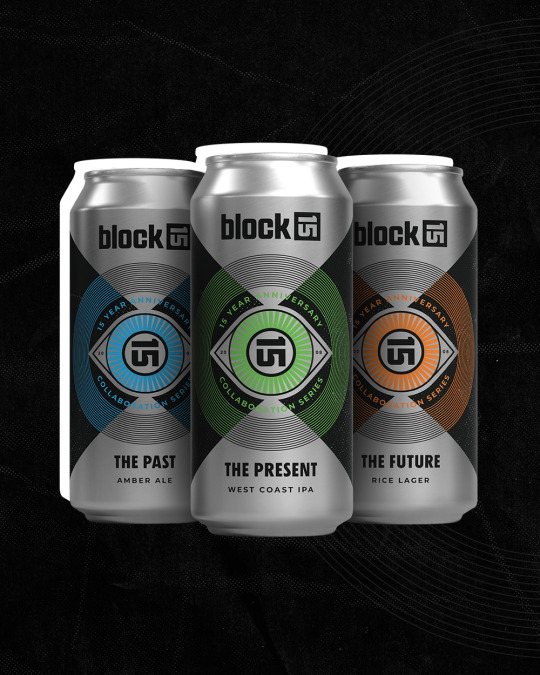
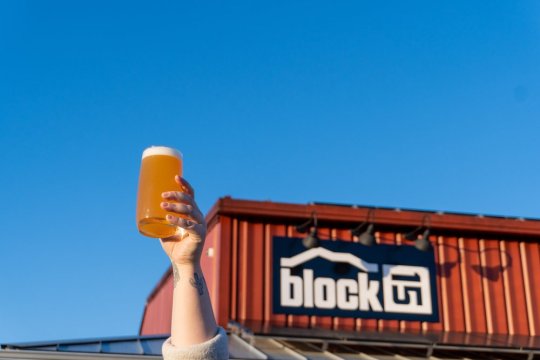
Press Release
Corvallis, Oregon’s Block 15 Brewing, is excited to announce its 15th Anniversary Celebration this April, along with three special collaboration beers releasing at The 15th Anniversary: Past, Present, and Future Fest. The celebration will be held in Corvallis at Block 15 Brewing on Saturday, 4/22, at their Southtown Taproom location, with a distribution tour shortly after, with locations and dates TBD.
The Anniversary Celebration will start with a limited VIP session from 1-2 pm, with general entry tickets starting at 2 pm and carrying through the night until 10 pm. The day will include live music, food from Portland’s Tastebud Wood Fired Pizza and Block 15’s Snack Shack, live screen printing, industry friends, new beer releases, vintage bottle releases, and the tapping of The Past, The Present, and The Future collaborations. The theme will focus on the past, present and future relationships that Block 15 Brewing has held over the years and are excited to make. Bring your friends and family; kids’ 12 and under admission will be free!
“We can’t believe it has been 15 years since we opened our doors! We want to sincerely thank the community of Corvallis and the friends we have made in the industry throughout this time. Here’s to many more beers and meals with our friends and family, Corvallis, and beyond.” - Nick and Kristen Arzner
Purchase Tickets
Tickets go live on March 24th at 11am. Tickets can be purchased on the 15 Anniversary Hub HERE.
About the Beers
The Past: Amber Ale - Partnering with Joel from Corvallis Brewing Supply, The Past is a brew to celebrate the building blocks of Block 15 brewing. Corvallis Brewing Supply and Joel Rea were instrumental in Block 15’s beginning and development as a community brewpub. From supplying our first home brew kit to providing knowledge and encouragement as we put together the dream of Corvallis’ first locally-owned brewpub. Few things stand the test of time as a crisp amber ale. We hope to inspire you as he did with generations of Oregon beer lovers. This brew is a toast to the past!
The Present: West Coast IPA - Partnering with our friends from ColdFire Brewing, The Present is a brew to celebrate the up-and-coming breweries in the industry. ColdFire has been a long-time friend, and we couldn’t be more excited to work with them. A shared vision of craft beer brought us together, but juicy Nectaron hops sealed our bond for this IPA. There’s no time like the present to create this delicious beverage with our friends from ColdFire.
The Future: Rice Lager - Partnering with the Oregon State University (OSU) Fermentation Science Department, The Future is a brew to celebrate the developing research and the new beginnings to the industry! This crisp and refreshing lager features pilsner malt grown in the PNW. A more sustainable beer for our future.
Revolve: Bier de Champagne Aged in Peach Brandy Barrels - Entering our 15th revolution, this golden ale features NW grown grains cellared two years with brettanomyces in peach brandy barrels and bottled, riddled and discouraged in the méthode traditionnelle, revolve symbolizes remaining in motion without forgetting where we started.
Friends of the Industry Tap List:
Foreland, Ferment, de Garde, Bespoken, ColdFire, Ale Apothecary, The Bier Stein
Events Calendar
- Tickets go on sale - March 24th
- 2008 Throwback Party - April 20th, 11 am to 11 pm - The original downtown location, Block 15 Restaurant & Brewery
- The 15th Anniversary: Past, Present, and Future Fest - April 22nd, with VIP starting at 1 pm and General Admission starting at 2 pm until 10pm - Block 15 Brewing Taproom *ticketed event*
- Distribution tour - Dates TBD
How To Get To the Fest
Block 15 will run shuttles between their original Block 15 Restaurant & Brewery downtown location to their Southtown Taproom. Carpooling and biking are highly encouraged! Parking will be VERY limited. Join their Strava Group if you’re heading there by bike and want the scenic bike route.
About Block 15 Brewing Company
Established in 2008, Block 15 aims to elevate excellence in the craft beer and beverage experience, measured by endless passion, curiosity, and drive for accessible brilliance. Our family includes our
Corvallis Downtown Brewpub, South Corvallis Production Brewery, Winery, and Taproom, Caves Restaurant, and craft distribution through the Pacific NW.
Block 15 Restaurant & Brewery Downtown: 300 SW Jefferson Ave, Corvallis, OR 97333
Taproom Location: 3415 SW Deschutes St, Corvallis, OR 97333
Caves Corvallis: 308 SW 3rd St, Corvallis, OR 97333
To learn more about Block 15 Brewing head HERE
from Northwest Beer Guide - News - The Northwest Beer Guide https://bit.ly/3K0h861
0 notes